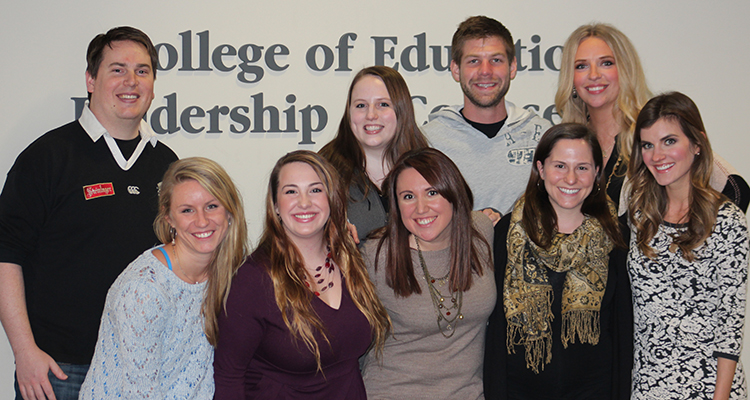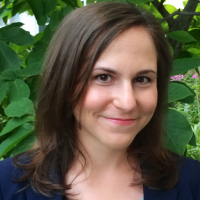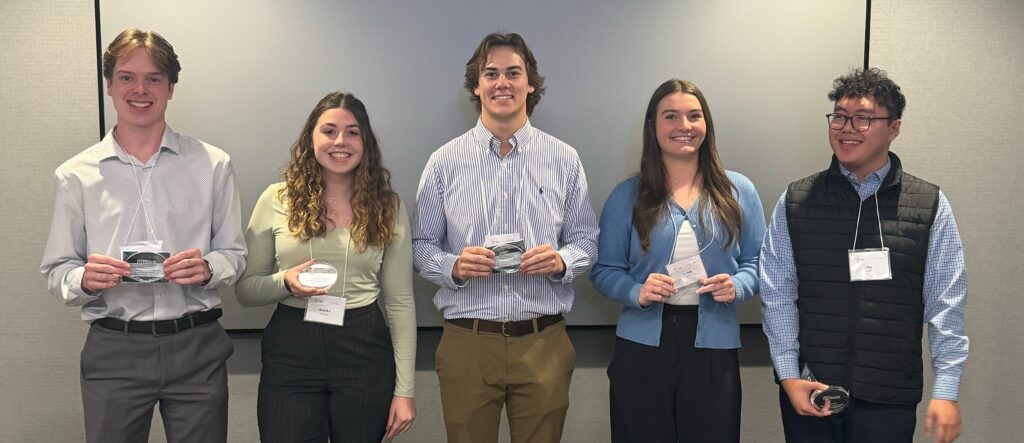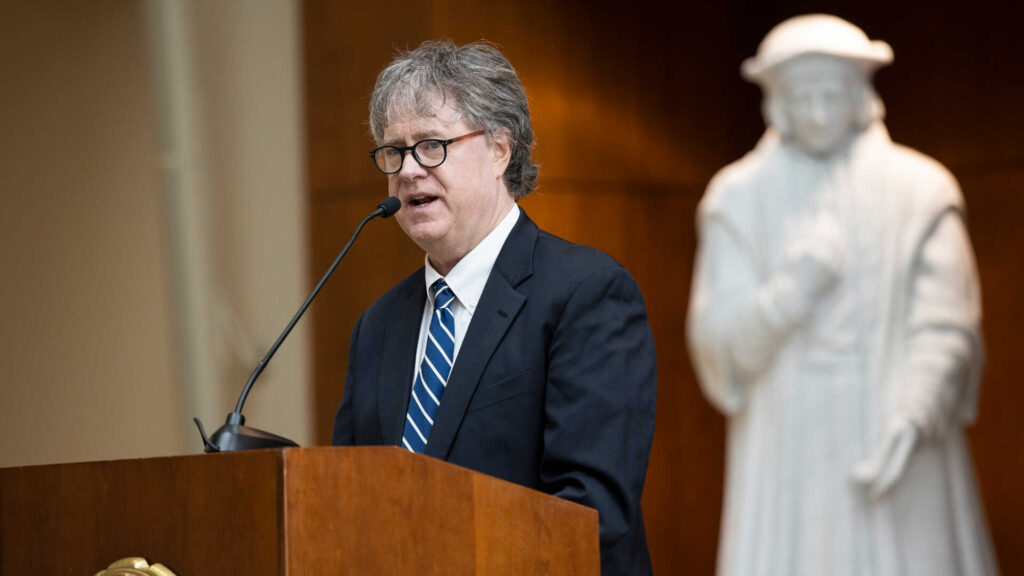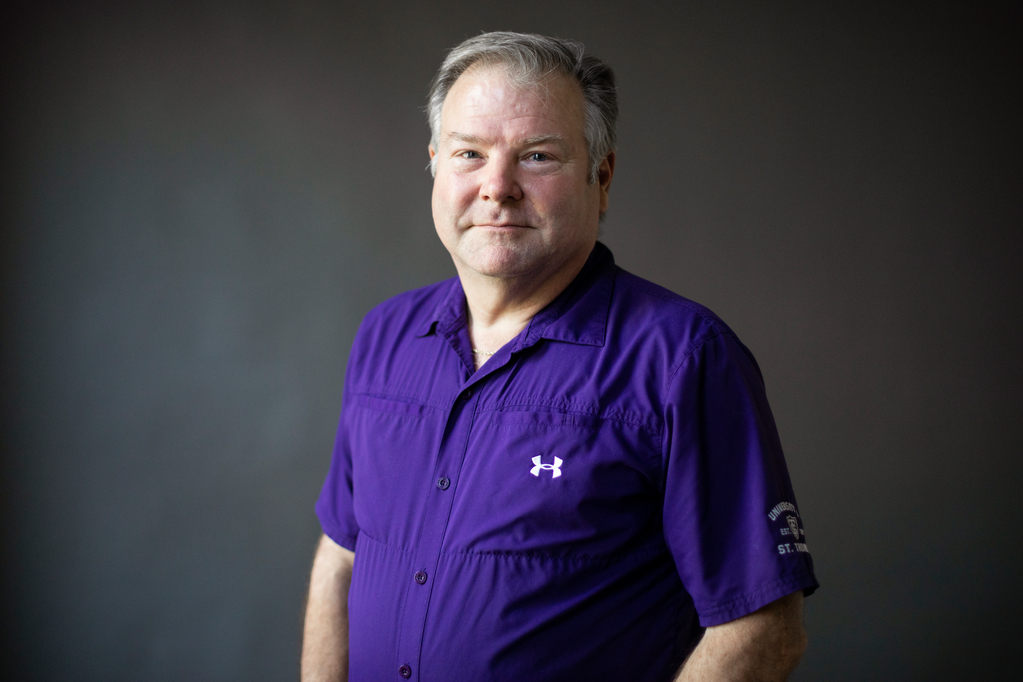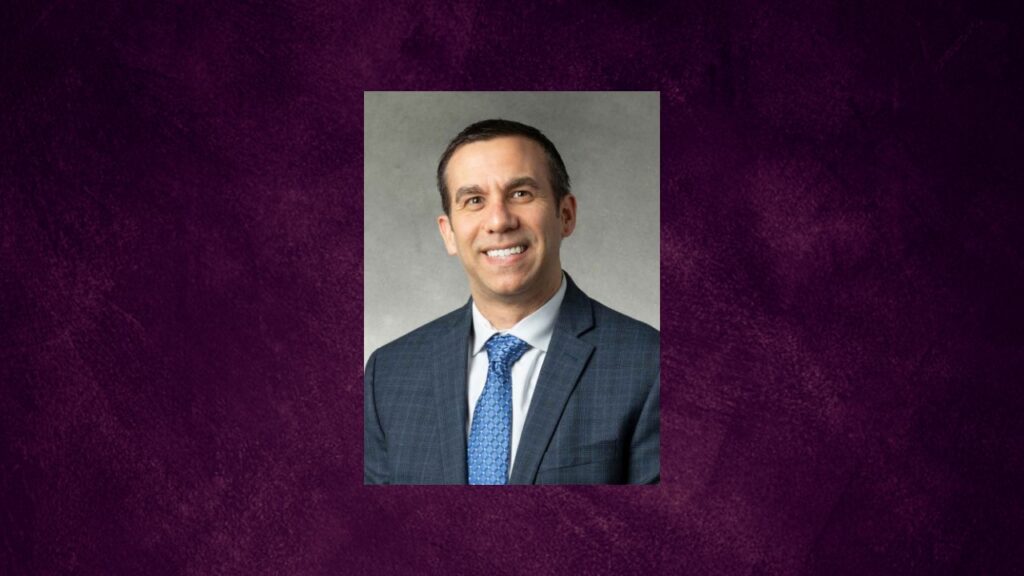Emily P.G. Erickson has a lot to look forward to. The almost-Master of Psychology is anticipating the birth of her first child just days after her May graduation. She can also look back on her time in the Graduate Program of Professional Psychology (GSPP) with the satisfaction that her work and study have been for the common good.
Erickson started her professional career as a junior planner for the City of St. Paul. Her joint degrees in geography and psychology came in handy when she became the city’s first Sustainable Transportation Planner.
In her work “facilitating anything except getting around in a car by yourself,” Erickson engaged intensely with the St. Paul community through outreach and public meetings. In 2012, at the Pro Walk/Pro Bike/Pro Place conference in Long Beach, California, she found herself sharing how she applied psychology to diffuse overheated civic discourse in her presentation, Shrink my problems: How psychology can save your public process.
“At this point the writing was on the wall,” Erickson said. “I thought if I’m giving people advice on psychology, I should get some more training in this.”
The native of Chicago found that she had a “significant handful of options” when it came to psychology master’s programs in the Twin Cities.
“I felt St. Thomas offered the most rigorous education and I appreciated the values and the emphasis on improving yourself as a therapist – the personal development piece.”
For the Common Good
Erickson has continued to put her leadership skills to good use as president of the GSPP’s Graduate Student Organization (GSO). Under her leadership, the organization received CELC’s Common Good Award in February. They are the first group to receive the award usually donned on individuals. The award established by former CELC Dean Bruce Kramer, Ed.D., recognizes outstanding contributions to either the CELC community or the wider community.
The nomination noted the GSO’s initiatives on diversity, fighting hunger and service to the student community. Erickson has been president since May 2014, after a year as public relations chair.
“I really wanted to make sure we were meeting the needs of the GSPP community,” she said. “I absolutely believe, if something is not working, don’t do it.”
The GSO began its own self-reflective improvement process by conducting a semi-annual survey of student interests and taking its last meeting of each semester to reflect on what was or wasn’t going well. To make it all work, Erickson tightened up the meeting process. Each chair also created a set of pass-on materials to ensure stability in an organization with quick turnover in membership.
With all its ducks in a row, the GSO took its culture of service and community to their fellow students. They lined up a slew of local mental health experts for presentations and discussions with students. Erickson also wanted to build a greater sense of community within the program of commuters who are often juggling work, family and schoolwork. The GSO added a riff on Jason Staton’s “Humans of New York” project to the organization's already-established social networks. “The Humans of GSPP” features monthly student profiles on the GSO Facebook page.
Erickson realized diversity was not only a value in the GSPP program but also a reality within the student community. To foster that value, the GSO started reflective discussion groups on diversity for GSPP practicum students.
She also wanted the group to be a vehicle to take the culture from the university into the wider community.
“A core value we have as a group is to respond to and connect to community,” Erickson said.
The GSO’s activities gave students an opportunity to do that. Hunger, she noted, is a mental health issue since people who are malnourished do not function at their best. Through its annual food drive, GSPP students can creatively apply their mental health training. They also connected students with faculty to participate in Mental Health Day at the capitol. For Erickson, these are way actualizing the values of the St. Thomas GSPP program.
“It’s how to live out what we care about,” she said.
Looking ahead
After graduation, Erickson will likely take her career in the direction of research. In addition to her studies and service with the GSO, the mother-to-be is currently working with the Center for Chronic Disease Outcomes Research at the Minneapolis Veteran Affairs Health Care System. Her work focuses on a mixed-methods study about war veterans and therapies for post-traumatic stress disorder called Project HomeFront. Among other tasks, Erickson is the lead qualitative interviewer on the project and helps design interview protocol and train volunteers.
Psychologists generally have three career avenues (or combination thereof) open to them – teaching, practice and research. Although she is interested in all three, Erickson initially thought she would focus primarily on practice, but with the help of feedback from professors, she identified her passion for research.
“This was something the faculty helped me see, which was unexpected because it’s not a research school,” she said. “The faculty is willing to look outside the box to benefit students.”
Even as an undergrad, Erickson had added an honors thesis to her degree and integrated a research project on trauma into a service mission on the Gulf Coast. Not until her GSPP professors pointed out to her that she was the always bringing research into her class work did she realize she always had been a researcher at heart.
The faculty’s ability to “look outside the box” also meant that, though her program did not emphasize research, her advisor Chris Vye, Ph.D., connected her with the Center for Chronic Disease Outcomes Research.
“One of the assets of GSPP is that the professors, the core faculty, are outstanding to a person,” she said.
Now Erickson will see how career, service and motherhood develop after graduation.
Are you a current student or alumnus/alumna of the College of Education, Leadership and Counseling who is interested in sharing your story? Contact us at celcnews.stthomas.edu.
